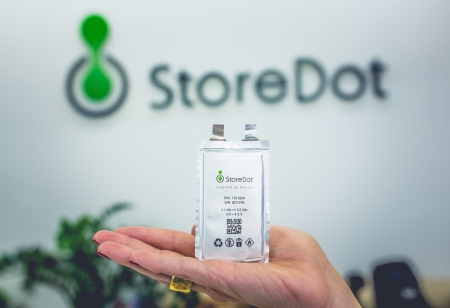
StoreDot, an Israeli start-up developing fast-charging batteries, announced a partnership with Circulor, a UK start-up that uses blockchain technology to map supply chains for companies pursuing greener, more sustainable production, on Tuesday.
StoreDot has started using Circulor's technology to track the origin and carbon footprint of the raw materials used in its battery cells.
Volvo Cars, Polestar, BHP, and TotalEnergies are among the companies that use it.
StoreDot, whose investors include the truck division of then-Daimler, now Mercedes-Benz, BP, Polestar, and Samsung, aims to develop cells that can travel 100 miles (161 kilometres) on a 5-minute charge by 2024.
In addition, the company has joined the 'Battery Pass' project, a German-funded consortium working to develop a common classification and standards for gathering and disclosing battery data. Circulor is another partner.
Legislators are increasing pressure on electric vehicle and battery manufacturers to track the human rights and environmental impact of their supply chains.
Rechargeable electric vehicles, light vehicles, and industrial batteries sold in Europe must disclose their carbon footprint beginning in 2024 and must meet a CO2 emissions limit beginning in 2027.
They must also disclose the recycled raw material content of batteries beginning in 2027, followed by requirements to use a minimum share of recycled cobalt, lithium, nickel, and lead beginning in 2030.